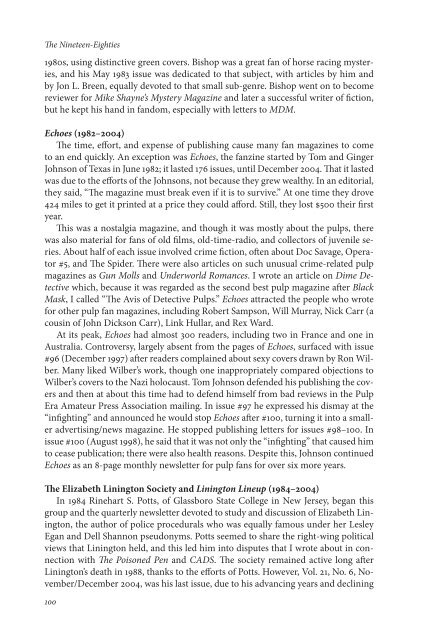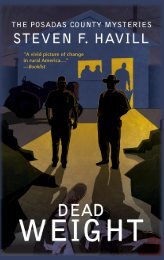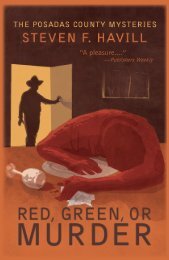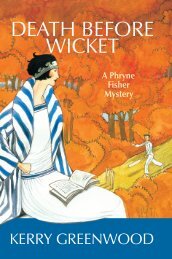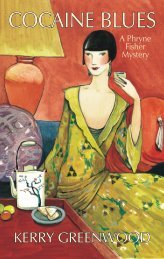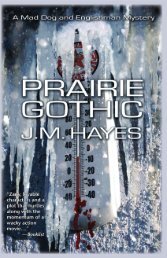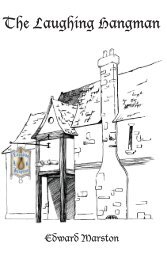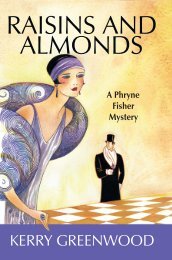The Heirs of Anthony Boucher Marvin Lachman
The Heirs of Anthony Boucher Marvin Lachman
The Heirs of Anthony Boucher Marvin Lachman
Create successful ePaper yourself
Turn your PDF publications into a flip-book with our unique Google optimized e-Paper software.
<strong>The</strong> Nineteen-Eighties<br />
1980s, using distinctive green covers. Bishop was a great fan <strong>of</strong> horse racing mysteries,<br />
and his May 1983 issue was dedicated to that subject, with articles by him and<br />
by Jon L. Breen, equally devoted to that small sub-genre. Bishop went on to become<br />
reviewer for Mike Shayne’s Mystery Magazine and later a successful writer <strong>of</strong> fiction,<br />
but he kept his hand in fandom, especially with letters to MDM.<br />
Echoes (1982–2004)<br />
<strong>The</strong> time, effort, and expense <strong>of</strong> publishing cause many fan magazines to come<br />
to an end quickly. An exception was Echoes, the fanzine started by Tom and Ginger<br />
Johnson <strong>of</strong> Texas in June 1982; it lasted 176 issues, until December 2004. That it lasted<br />
was due to the efforts <strong>of</strong> the Johnsons, not because they grew wealthy. In an editorial,<br />
they said, “<strong>The</strong> magazine must break even if it is to survive.” At one time they drove<br />
424 miles to get it printed at a price they could afford. Still, they lost $500 their first<br />
year.<br />
This was a nostalgia magazine, and though it was mostly about the pulps, there<br />
was also material for fans <strong>of</strong> old films, old-time-radio, and collectors <strong>of</strong> juvenile series.<br />
About half <strong>of</strong> each issue involved crime fiction, <strong>of</strong>ten about Doc Savage, Operator<br />
#5, and <strong>The</strong> Spider. <strong>The</strong>re were also articles on such unusual crime-related pulp<br />
magazines as Gun Molls and Underworld Romances. I wrote an article on Dime Detective<br />
which, because it was regarded as the second best pulp magazine after Black<br />
Mask, I called “<strong>The</strong> Avis <strong>of</strong> Detective Pulps.” Echoes attracted the people who wrote<br />
for other pulp fan magazines, including Robert Sampson, Will Murray, Nick Carr (a<br />
cousin <strong>of</strong> John Dickson Carr), Link Hullar, and Rex Ward.<br />
At its peak, Echoes had almost 300 readers, including two in France and one in<br />
Australia. Controversy, largely absent from the pages <strong>of</strong> Echoes, surfaced with issue<br />
#96 (December 1997) after readers complained about sexy covers drawn by Ron Wilber.<br />
Many liked Wilber’s work, though one inappropriately compared objections to<br />
Wilber’s covers to the Nazi holocaust. Tom Johnson defended his publishing the covers<br />
and then at about this time had to defend himself from bad reviews in the Pulp<br />
Era Amateur Press Association mailing. In issue #97 he expressed his dismay at the<br />
“infighting” and announced he would stop Echoes after #100, turning it into a smaller<br />
advertising/news magazine. He stopped publishing letters for issues #98–100. In<br />
issue #100 (August 1998), he said that it was not only the “infighting” that caused him<br />
to cease publication; there were also health reasons. Despite this, Johnson continued<br />
Echoes as an 8-page monthly newsletter for pulp fans for over six more years.<br />
<strong>The</strong> Elizabeth Linington Society and Linington Lineup (1984–2004)<br />
In 1984 Rinehart S. Potts, <strong>of</strong> Glassboro State College in New Jersey, began this<br />
group and the quarterly newsletter devoted to study and discussion <strong>of</strong> Elizabeth Linington,<br />
the author <strong>of</strong> police procedurals who was equally famous under her Lesley<br />
Egan and Dell Shannon pseudonyms. Potts seemed to share the right-wing political<br />
views that Linington held, and this led him into disputes that I wrote about in connection<br />
with <strong>The</strong> Poisoned Pen and CADS. <strong>The</strong> society remained active long after<br />
Linington’s death in 1988, thanks to the efforts <strong>of</strong> Potts. However, Vol. 21, No. 6, November/December<br />
2004, was his last issue, due to his advancing years and declining<br />
100


